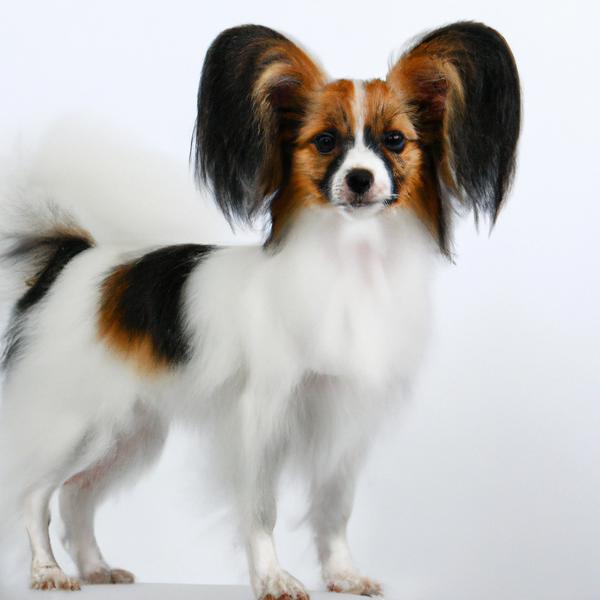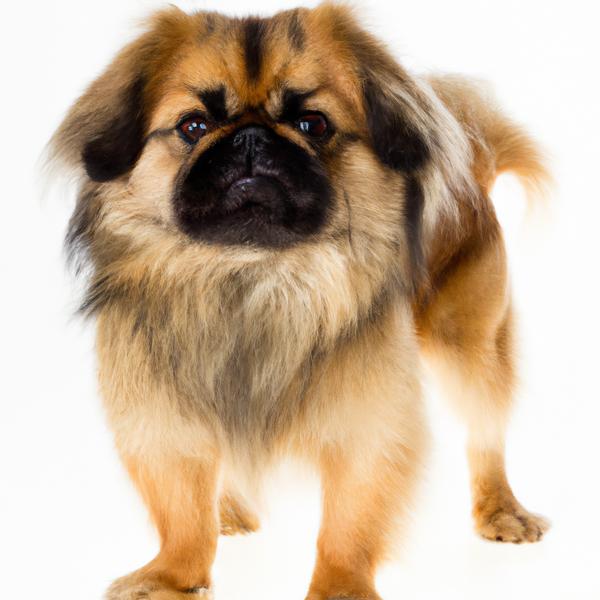English Toy Papillon vs. Peke-A-Pap: Breed Differences and Similarities
Hypoallergenic
Are English Toy Papillons or Peke-A-Paps hypoallergenic, or neither?
Unfortunately, neither English Toy Papillon nor Peke-A-Pap are hypoallergenic, which may not make them the best choice for dog lovers who suffer from pet allergies.
Temperament
What are the personalities of English Toy Papillon and Peke-A-Pap dogs?
Playful
Loving
Happy
Energetic
Alert
Intelligent
Friendly
Affectionate
Gentle
Reserved
Stubborn
Happy
Energetic
Alert
Intelligent
Friendly
Affectionate
Aggressive
Good-natured
Opinionated
Shedding Level
Do English Toy Papillons shed more than Peke-A-Paps, or which breed sheds more, English Toy Papillons or Peke-A-Paps?
English Toy Papillon or Peke-A-Pap dogs are low shedders. The coat sheds an average amount and doesn't require much care.
Ancestry
What are the origins of English Toy Papillon and Peke-A-Pap breeds?
Papillon and English Toy Spaniel
Papillon, Pekingese
Date of Birth
When were English Toy Papillon and Peke-A-Pap breeds first developed?
Unknown
Eye Color Possibilites
What are the eye colors of English Toy Papillon and Peke-A-Pap dogs?
Brown
Brown
Nose Color Possibilites
What are the natural nose colors of English Toy Papillon and Peke-A-Pap?
Black
Black
Coat Color Possibilites
What are the natural colors of the coat for English Toy Papillon and Peke-A-Pap breeds?
Black
White
Brown
Pied
Red
Fawn
Sable
Brown
Black
White
Coat Length
What is the typical coat length for English Toy Papillon and Peke-A-Pap breeds?
English Toy Papillons have medium-length coats.
Peke-A-Paps are known for their coat length.
Coat Density
What is the density of the coat of English Toy Papillon and Peke-A-Pap?
Coat Texture
What is the hair texture of English Toy Papillon and Peke-A-Pap?
Straight
Litter Size
What is the usual litter size for English Toy Papillon and Peke-A-Pap?
An English Toy Papillon can have a litter of 3-5 puppies on average. However, it's worth noting that the size of the litters can vary greatly. Factors that can influence litter size include the health of the mother, breeding history, and genetics.
A Peke-A-Pap can have a litter of 2-4 puppies on average. However, it's worth noting that the size of the litters can vary greatly. Factors that can influence litter size include the health of the mother, breeding history, and genetics.
Adaptability
English Toy Papillon and Peke-A-Paps are known for their adaptability and versatility. They are capable of adapting well to a wide range of lifestyle changes and living environments, making them great companions for families and individuals of all lifestyles.
Health Issues
Between English Toy Papillon and Peke-A-Pap, which breed is more prone to health problems?
While the English Toy Papillon breed is generally healthy, occasional vet check-ups are still necessary to address any health concerns.
Peke-A-Paps typically have low vet costs due to their good health, but it's important to monitor their health and seek vet care when necessary.
Major Concerns
What are the major health concerns for English Toy Papillon and Peke-A-Pap breeds?
Patellar Luxation
Anesthesia Sensitivity/Allergy
Patellar Luxation
Entropion
Deafness
Hip Dysplasia
Skin Fold Dermatitis
Mitral Valve Disease
Brachycephalic Syndrome
Exposure Keratopathy Syndrome
Minor Concerns
What minor health issues should be kept in mind when owning English Toy Papillon and Peke-A-Pap?
Cataracts
Progressive Retinal Atrophy (PRA)
KCS
Progressive Retinal Atrophy
Cataracts
Von Willebrand's Disease
Occasional Tests
What occasional tests are recommended for English Toy Papillon and Peke-A-Pap breeds?
X-Rays
Blood Chemistry
Knee
Heart
Dna For Vwd
Hips
X-Rays
Physical Examination
Allergy Tests
Respiratory Tests
Eye examination
Social Needs
English Toy Papillon vs Peke-A-Pap social needs comparison
English Toy Papillon has very high social needs and requires regular mental and physical stimulation, a job or purpose, and companionship.
Peke-A-Pap has above average social needs and thrives with interaction with humans and other dogs.
Sleeping Need
Which of the two sleeps the most/least: English Toy Papillon or Peke-A-Pap?
English Toy Papillons are known for their relaxed and calm nature and enjoy long periods of sleep.
Peke-A-Paps have moderate energy levels and typical sleep patterns of 12-14 hours per day.
Mouthiness
Mouthiness Comparison: English Toy Papillon vs Peke-A-Pap?
Roaming urge
English Toy Papillon vs Labrador: Running away tendency?
Prey Drive
English Toy Papillon or Peke-A-Pap - which breed has a higher level of prey drive?
Activity Level
Which breed has higher energy, English Toy Papillons or Peke-A-Paps?
English Toy Papillons are high-energy dogs. They need mental as well as physical exercise. These dogs require a lot of your involvement and without it they can, and will, become problematic dogs.
Peke-A-Paps are medium-energy dogs and typically enjoy socializing and playing casual or even sustained games of chase with other dogs. They may also have occasional periods of barking or racing around the house.
Tolerance of being left alone
Walks per Week
How many miles should English Toy Papillon or Peke-A-Pap walk each week?
English Toy Papillon and Peke-A-Pap generally need a minimum of 8 miles of walking per week, but it can be increased as long as they are comfortable with it.
Activity per Day
Do English Toy Papillons or Peke-A-Paps require more exercise?
In general most English Toy Papillons usually need at least 40 minutes of exercise daily. This can be spread across the day and include all sorts of high-energy activities, like walking, running and playing.
In general most Peke-A-Paps usually need at least 25 minutes of exercise daily. This can be spread across the day and include all sorts of high-energy activities, like walking, running and playing.
Grooming
Which breed is easier to maintain in terms of grooming, English Toy Papillons or Peke-A-Paps?
The English Toy Papillon requires an average amount of grooming compared to other breeds.
Peke-A-Paps require significant grooming, including regular trims and professional grooming assistance to maintain their coat. They may also require frequent bathing to keep their coat and skin healthy.
Brushing Frequency
What is the recommended brushing frequency for English Toy Papillon and Peke-A-Pap dogs?
English Toy Papillon and Peke-A-Pap should be brushed at least once a week. Of course, you can give them more frequent brushes if you find that they are still shedding a lot.
Brushing Tools
What brushing tools are used for English Toy Papillons and Peke-A-Paps?
Pin Brush
Scissors
Nail Clipper
Pin Brush
Comb
Clipper
Nail Clipper
Cups
How much food should be given to English Toy Papillon or Peke-A-Pap in cups?
English Toy Papillon and Peke-A-Pap share the same recommended daily food intake of 1 cups, although the appropriate quantity may vary depending on the quality and nutritional content of their food.
Daily Cost
Which breed has a higher daily cost, English Toy Papillon or Peke-A-Pap?
English Toy Papillon and Peke-A-Pap have a similar average daily cost of around $1.10 - $1.40.
Monthly Cost
Which breed has a higher monthly cost, English Toy Papillon or Peke-A-Pap?
When it comes to monthly expenses, both English Toy Papillon and Peke-A-Pap have a similar average cost, ranging from $28 - $42. This results in an average yearly cost of around $336 - $504.
Sensitivity Level
How do English Toy Papillon and Peke-A-Pap compare in sensitivity?
English Toy Papillon and Peke-A-Pap dogs have average emotions and are adaptable to different situations, not requiring extra care like sensitive breeds do.
Apartment Friendly
Which breed is more apartment-friendly: English Toy Papillon or Peke-A-Pap?
English Toy Papillon and Peke-A-Pap are apartment-friendly dog breeds. They can do perfectly well in apartments providing they are sufficiently exercised and taken out and about as part of their owner's daily lifestyle.
Child Friendly
Do English Toy Papillons or Peke-A-Paps have a friendlier temperament towards children?
English Toy Papillons are good with kids if socialized and trained from a young age.
Peke-A-Paps have an average level of friendliness towards children.
Senior-friendly
Which dog is more suitable as a pet for the elderly - English Toy Papillon or Peke-A-Pap?
Cat Friendly
Do English Toy Papillon or Peke-A-Pap breeds have a better compatibility with cats?
English Toy Papillons are good with cats, but early training is needed to prevent chasing behavior.
Peke-A-Paps are very friendly with cats and make great companions for them.
Dog Friendly
Which breed is more sociable with other dogs: English Toy Papillon or Peke-A-Pap?
{English Toy Papillons and Peke-A-Paps are average friendly towards other dogs. If they are raised with other dogs, they are likely to get along with them. And, if they are socialized properly from a young age, they will usually be great with other dogs.
Pet friendly
How do English Toy Papillon or Peke-A-Pap dogs interact with other pets?
Stranger Friendly
Which breed is more friendly with strangers: English Toy Papillon or Peke-A-Pap?
English Toy Papillon and Peke-A-Pap are friendly dogs and typically won't bark at strangers. However, if you wish to change this behavior, training them is easy thanks to their intelligence, making it pretty simple to teach them anything.
Playfulness
Which breed is more playful between English Toy Papillon and Peke-A-Pap?
English Toy Papillons are a playful breed that needs daily playtime to be happy.
Peke-A-Paps have an average level of playfulness, enjoying playtime like most dogs but not excessively so.
Trainability
How do the trainability levels of English Toy Papillons and Peke-A-Paps compare?
English Toy Papillon and Peke-A-Pap dogs are known for their ease of training and ability to learn quickly, making them a popular choice for pet owners and trainers alike.
Compare English Toy Papillon with other breeds
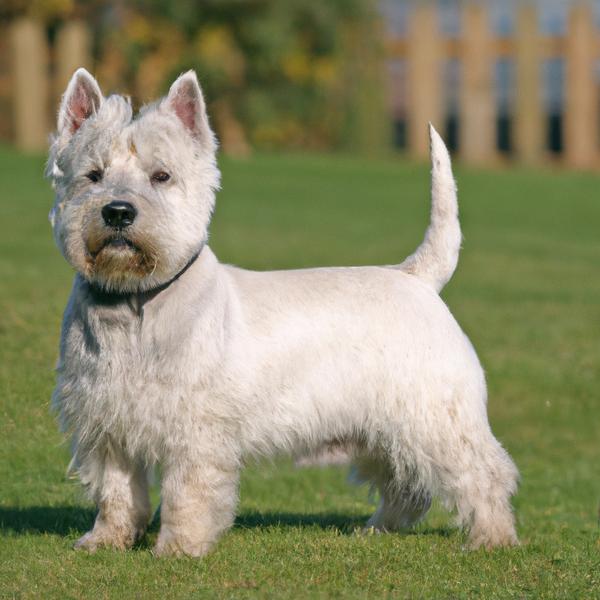
Jack Highland Terrier
English Toy Papillon vs Jack Highland Terrier
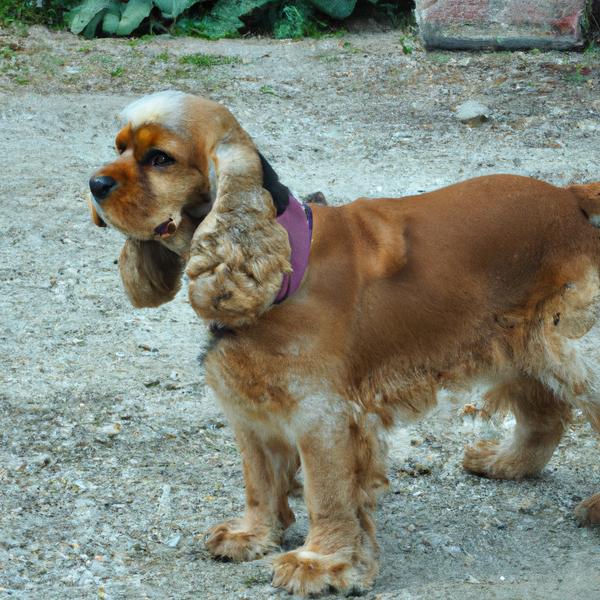
Cairicocker
English Toy Papillon vs Cairicocker
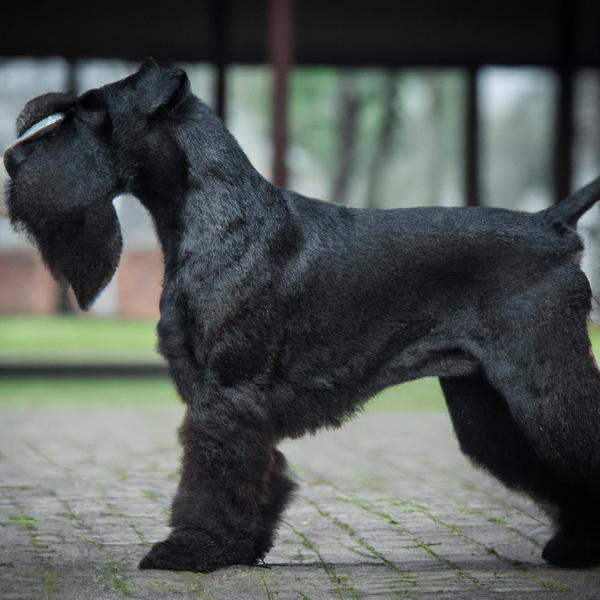
Giant Schnauzer Chin
English Toy Papillon vs Giant Schnauzer Chin
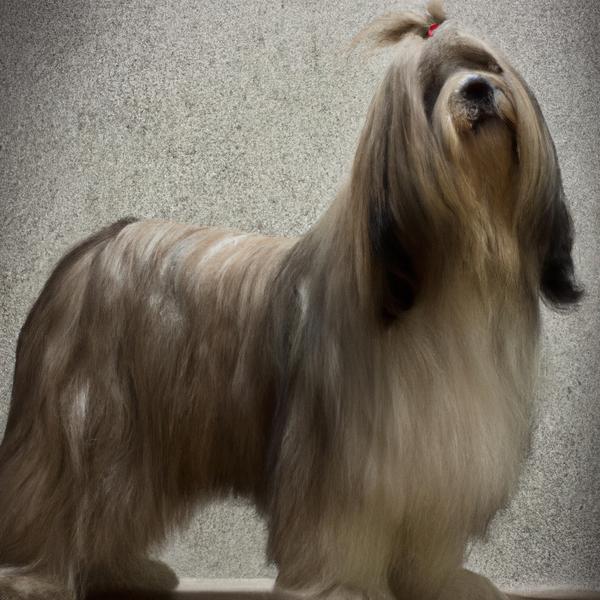
Hava-Jack
English Toy Papillon vs Hava-Jack
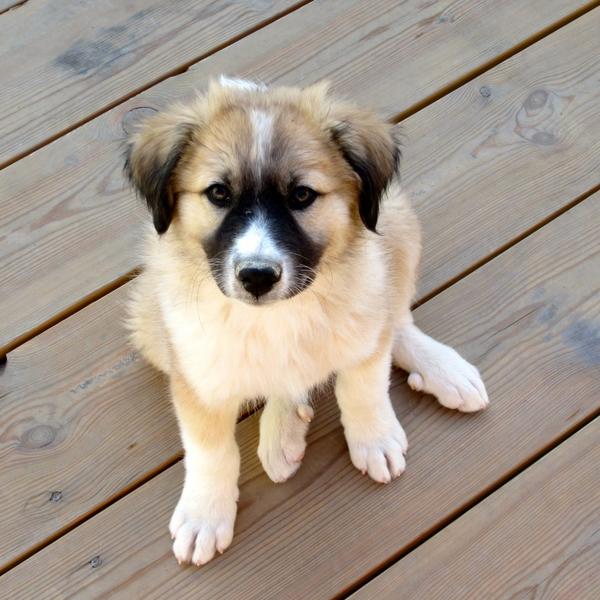
Kuchi
English Toy Papillon vs Kuchi
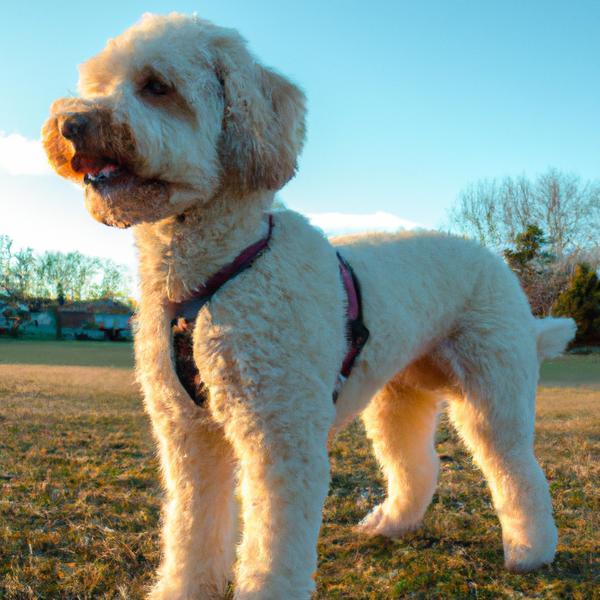
Scoodle
English Toy Papillon vs Scoodle
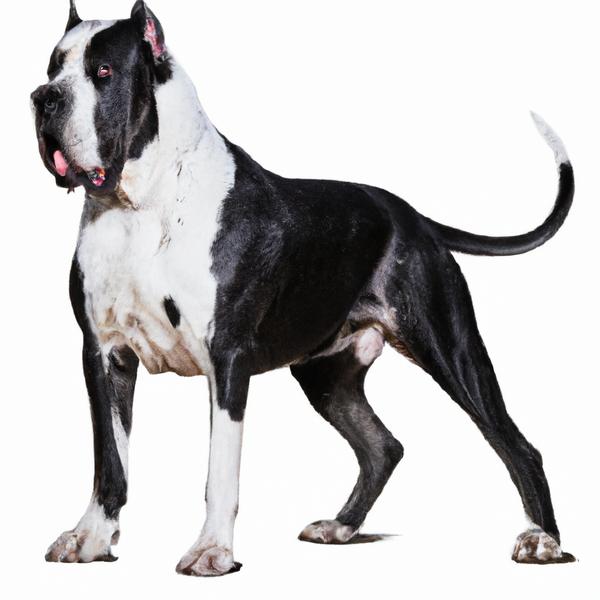
English Bull Dane
English Toy Papillon vs English Bull Dane
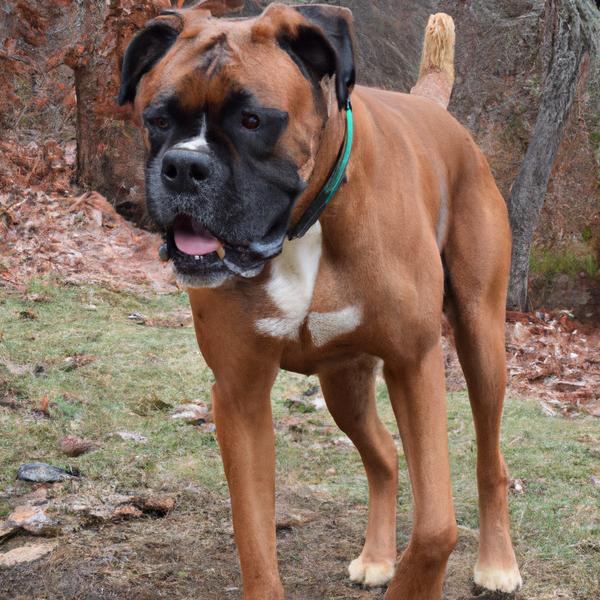
Boxer Shepherd
English Toy Papillon vs Boxer Shepherd
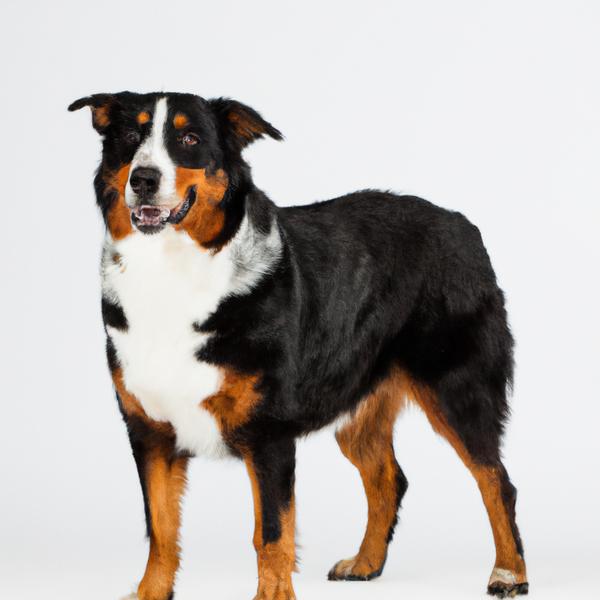
Bernese Cattle Dog
English Toy Papillon vs Bernese Cattle Dog
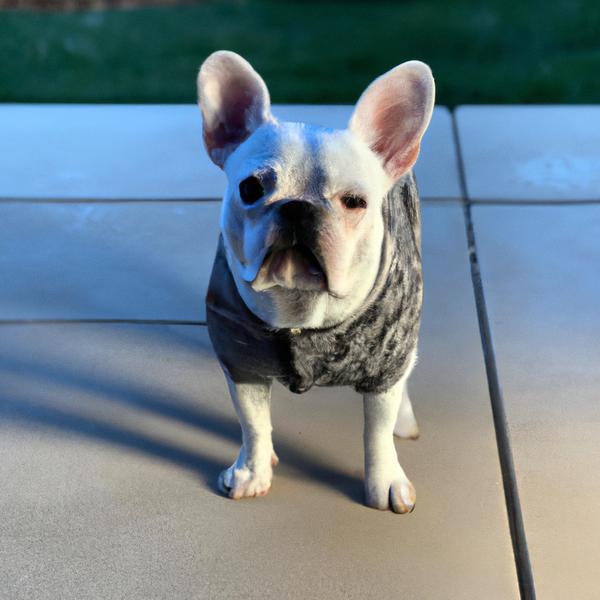
Frenchie Bichon
English Toy Papillon vs Frenchie Bichon
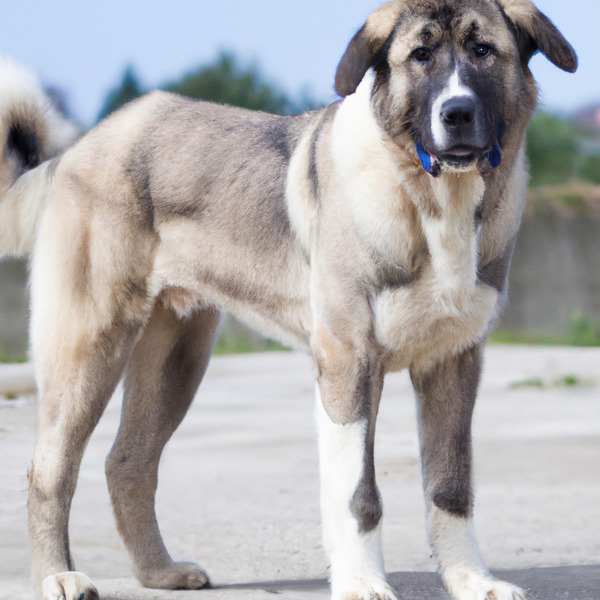
Kangal
English Toy Papillon vs Kangal
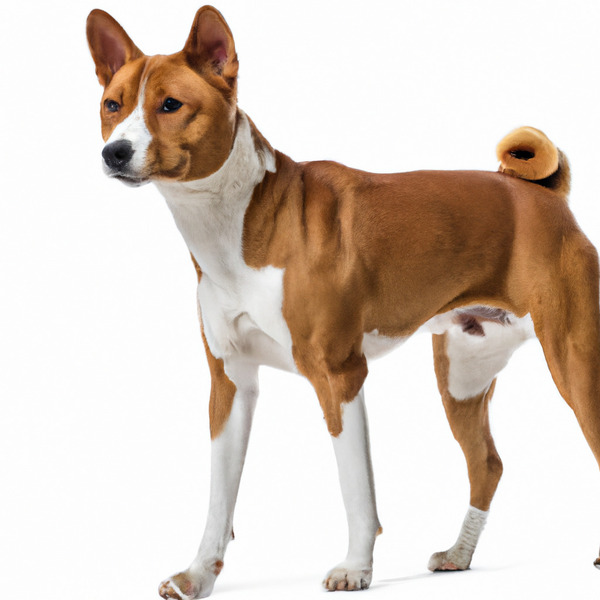
Basenji
English Toy Papillon vs Basenji
